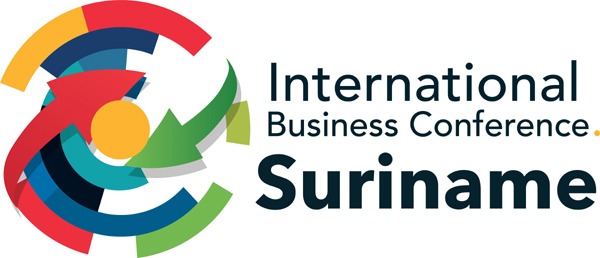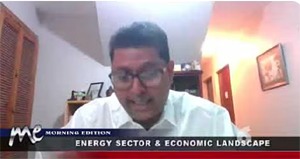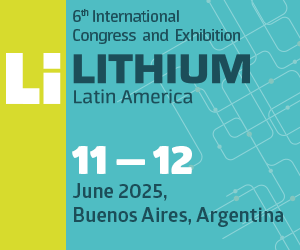
Latin America Daily Briefing
Anti-corruption crusader Bernardo Arévalo swore in as Guatemala’s president early this morning, after a nine-hour delay caused by Congressional wrangling.
“Our democracy has the strength to resist and through unity and trust we can transform the political landscape in Guatemala,” Arévalo said moments after taking office. “Never again will there be human rights violations,” he added.(Reuters)
Arévalo thanked Guatemala’s youth for not losing hope and the country’s Indigenous peoples for their support, acknowledging “historic debts that we must resolve.” He summarized his administration’s guiding principle as: “There cannot be democracy without social justice and social justice cannot prevail without democracy.” (Associated Press)
Fights between legislators drew out an act to swear in lawmakers and appoint a board of directors, necessitating Constitutional Court intervention to finalize the proceedings so Arévalo could take office just after midnight, reports El País.
Ultimately “Congress agreed to recognise the Seed Movement party days after temporarily suspending it and insisting that its lawmakers join the legislature as independent members. Arevalo’s party also won the presidency of the Congress, giving it influence in shaping the body’s agenda,” reports Al Jazeera.
Supporters of Arévalo’s Movimiento Semilla party, who have been key in defending Arévalo’s electoral victory from a slew of of politically-motivated legal maneuvers aimed at preventing him from taking office, marched to Congress yesterday to protest the delay.
“These calls were supported by Guatemala’s Indigenous communities, who have been holding a sit-in in front of the Public Ministry for 105 days to defend democracy against prosecutors’ efforts to disqualify Arévalo,” reports El País. (More on Indigenous resistance in defense of Arévalo in El País.)
“For many Guatemalans, Sunday’s inauguration represented not only the culmination of Arévalo’s victory at the polls, but also their successful defense of the country’s democracy,” reports the Associated Press.
The international delegations present for Arévalo’s swearing in added to pressure to allow him to assume office with a document in support of the president and democracy that was read by the Secretary General of the Organization of American States (OAS), Luis Almagro, at around 5 p.m., accompanied by Spanish Minister of Foreign Affairs José Manuel Albares, Mexican Minister of Foreign Affairs Alicia Bárcena, the president of Costa Rica, Rodrigo Chaves, the vice president of Brazil, Geraldo Alckmin, and the high representative of the European Union for Foreign Affairs and Security Policy, Josep Borrell. (El País)
“There is no question that Bernardo Arévalo is the president of Guatemala,” said Samantha Power, the administrator of the United States Agency for International Development, who led a U.S. delegation to the inauguration. (New York Times)
More Guatemala
- Arévalo promised weeks ago that one of his first acts will be to demand the resignation of attorney general Consuelo Porras, who has spearheaded judicial maneuvers against him and is designated on the U.S. Engels List. (El País)
- Interview with Arévalo in El País.
- Despite the deep challenges that Arévalo faces, evinced by the ceaseless efforts to prevent him from taking office, “the opportunities that emerge today to reverse autocratization in Guatemala are unprecedented,” argues Vaclav Masek in El País.
Ecuadorean security forces try to retake prisons
All of the hostages seized by criminal gangs in prison riots across Ecuador have been freed, national authorities said yesterday. The hostages were 158 prison guards and 20 administrative staffers, had been held since last Monday, in at least seven prisons in the midst of a series of coordinated violent attacks across Ecuador, reports Al Jazeera.
After the release of hostages, military forces have sought to retake control of Ecuador’s penitentiaries, which are largely controlled by criminal organizations, reports AFP.
Yesterday, Ecuador’s security forces carried out operations in several prisons as well as patrols and searches in the streets, reports EFE.
Images shared by Ecuadorean armed forces showed prisoners in their underwear, on their knees or lying flat on the floor, in the seven jails where hostages had been taken, reports Reuters. “The national police are respecting the human rights of these people. We are doing so in a very calm manner,” Norman Cano, police chief at the Esmeraldas prison, said on social media.
At least 1,105 people have been arrested since Ecuador’s government declared a state of emergency a week ago, according to official figures. Two police officers have been killed and five alleged “terrorists” (the government designated 22 criminal groups as “terrorist organizations). Security forces have carried out a total of 12,974 operations, of which 32 have been directed against “terrorist” groups. (Guardian, Reuters, EFE)
President Daniel Noboa “has asked lawmakers to weigh an increase in value added tax to finance efforts to combat crime gangs, as the armed forces increased operations in violent areas on Friday,” reports Reuters.
Ecuador’s homicide rate has skyrocketed in recent years, as the country became an increasingly important cocaine transit hub — related to shifting dynamics in trafficking routes and the Colombian 2016 peace deal with the FARC. Underlying violent conflict between criminal gangs — mainly Los Choneros and Los Lobos — in Ecuador are alliances with rival Mexican groups, Jalisco New Generation Cartel and and the Sinaloa Cartel, reports the Associated Press.
The mainstream narrative about Ecuador is that it was an island of peace until a few years ago. “However, a look at the last 40 years shows that the problems that have now emerged have been brewing since the 1980s, when large-scale drug trafficking began and the first gangs were created,” reports El País.
El País points to key evolutions, like the skyrocketing prison population under former President Rafael Correa, whose policies included judicial reform. Successive governments, focused on political responses to Correismo, failed to respond to criminal control of penitentiaries.
In fact, Correa’s success at reducing violence, with a combination of punitive strategies with social prevention policies, occurred simultaneously with the expansion of drug trafficking in the country and collusion between police and criminal groups controlled by prison inmates, according to Luis Córdova-Alarcón in Nueva Sociedad.
President Daniel Noboa’s unprecedented declaration of “internal armed conflict” last week anchors “governability in a total liberalization of the economy, within the framework of a progressive militarization of society,” argus Córdova-Alarcón.

Nicaragua
- Nicaragua’s government released two jailed Roman Catholic bishops and 15 other priests and handed the over to the Vatican, yesterday. The most prominent of the detainees is Bishop Rolando Álvarez, an outspoken critic of President Daniel Ortega, who has cracked down on the Catholic church. (Washington Post, New York Times, Associated Press, Reuters)
Argentina
- Pope Francis said he hopes to visit his native Argentina later this year, the first time in his 11-year-old papacy that he would return. “In an interview with the host of a talk show on a private Italian TV channel, Francis said he is worrying about Argentina’s people because “they are suffering much,” an apparent reference to the ravaged economy in that country,” reports the Washington Post.
- As Argentina’s Congress debates President Javier Milei’s massive set of reforms, the leader warned that adjustment will be more drastic if lawmakers fail to approve the changes he has proposed through presidential decree and an “omnibus law.” (La Nación)
Regional
- Universidad Torcuato Di Tella professor Javier Zelaznik analyzes the success of Latin American governments that rely on presidential decrees to govern, and found that a key difference lies in the level of congressional support the administration has. (El Economista)
Colombia
- The Colombian government agreed to extend a cease-fire with dissident FARC group Estado Mayor Central for six months, part of ongoing peace negotiations, reports the Associated Press.
- At least 34 people were killed in a mudslide in Colombia, on Friday. The Petro administration declared the zone a natural disaster, reports the Associated Press. (See also Associated Press.)
Mexico
- Mexico’s agricultural sector is hard hit by organized crime, which is adding to the ravages of climate change and the lack of subsidies, reports El País.
Chile
- “Protesters agreed to end demonstrations that had blocked access to the Atacama salt flat in Chile, the world’s largest lithium deposit, with the promise of a visit by President Gabriel Boric,” reports Reuters.
Lenguas
- How the Chaná Indigenous language was preserved by one last speaker in Argentina — New York Times
Jordana Timerman / Latin America Daily Briefing 01 15 2024
http://latinamericadailybriefing.blogspot
EnergiesNet.com













